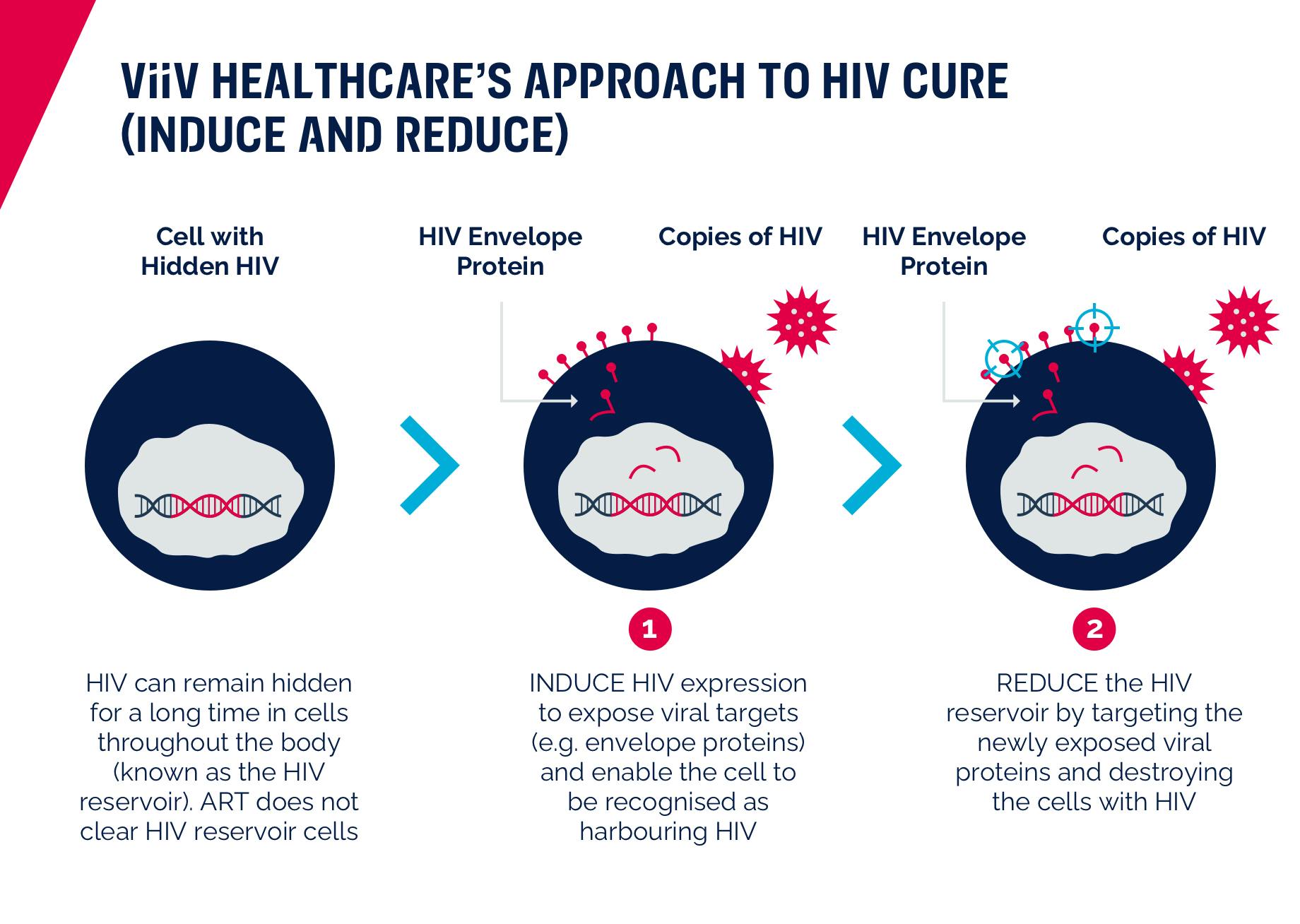Unlocking Hope: Latest Breakthroughs in HIV/AIDS Research and Potential Cures
In recent years, incredible strides have been made in HIV/AIDS research, unveiling groundbreaking discoveries and potential cures for this global health crisis. Researchers worldwide tirelessly contribute to advancing our understanding of the virus and developing innovative treatments to manage and prevent its spread.This article delves into the latest breakthroughs in HIV/AIDS research, encompassing advancements in treatment options and emerging therapies. It also discusses the potential for developing an HIV vaccine and the role of technology in HIV/AIDS management. Additionally, it addresses gaps in research, emphasizes the prioritization of marginalized communities, and combats HIV/AIDS stigma and discrimination.

Key Takeaways:
- The latest breakthroughs in HIV/AIDS research offer hope for potential cures.
- Advancements in treatment options and emerging therapies are improving the quality of life for those living with HIV/AIDS.
- Ongoing research efforts towards developing a vaccine to prevent HIV infection are promising.
- Technology has revolutionized the management and prevention of HIV/AIDS.
- Collaborative research and funding are crucial in continuing to make progress and combat HIV/AIDS stigma and discrimination.
Understanding HIV/AIDS: A Brief Overview
HIV/AIDS is a global pandemic affecting millions worldwide, with approximately 38 million people living with HIV/AIDS at the end of 2019. The virus compromises the immune system, making it challenging for the body to fight infections and diseases. Breakthroughs in research have enhanced our understanding of transmission, impact on the body, and improved management, allowing individuals with HIV/AIDS to lead longer, healthier lives.
However, challenges persist, particularly in marginalized communities, and a definitive cure remains elusive, emphasizing the ongoing need for innovative solutions to address evolving challenges.
“HIV/AIDS is not a death sentence. It’s a manageable disease if you’re willing to take the medicine and take care of yourself.” – Magic Johnson
Advancements in HIV/AIDS Treatment
Thanks to groundbreaking research, advancements in HIV/AIDS treatment options are expanding, offering new hope to those living with the virus. These new treatments are helping to manage the virus and improve the quality of life for those living with HIV/AIDS.

Antiretroviral Therapy (ART)
One of the most significant advancements in HIV/AIDS treatment is the development of antiretroviral therapy (ART). ART is a combination of medications that target different stages of the HIV life cycle, preventing the virus from replicating and reducing the amount of virus in the body. This therapy can help people living with HIV/AIDS to live longer, healthier lives.
Recent findings in HIV/AIDS research have led to new and more effective ART medications that have fewer side effects and are easier to take. These new ART medications have been particularly important in reaching marginalized communities who previously had limited access to HIV/AIDS treatment.
Broadly Neutralizing Antibodies (bNAbs)
Broadly neutralizing antibodies (bNAbs) are a new and promising approach to HIV/AIDS treatment. These antibodies can target multiple strains of the virus and have the potential to provide long-lasting protection against HIV infection. They may also have the potential to eliminate the virus altogether, offering a potential cure for HIV/AIDS.
Recent breakthroughs in HIV/AIDS research have led to the development of bNAbs that are more potent and can last longer in the body. Researchers are hopeful that these new and improved bNAbs may offer a new path to finding a cure for HIV/AIDS.
Gene Editing
Gene editing is a cutting-edge development in HIV/AIDS treatment that holds enormous promise. Scientists are working to develop gene-editing techniques that can modify the DNA of HIV-infected cells. This technique has the potential to eliminate the virus altogether and offers a potential cure for HIV/AIDS.
Recent findings in HIV/AIDS research have led to breakthroughs in gene editing that have shown promising results in pre-clinical trials. Researchers are hopeful that gene editing may offer a cure for HIV/AIDS in the future.
“Advancements in HIV/AIDS treatment are expanding, offering new hope to those living with the virus.”
In conclusion, recent findings in HIV/AIDS research have led to exciting new developments in HIV/AIDS treatment. These advancements are expanding treatment options and offering new hope to those living with the virus. Whether it’s through improved ART medications, the development of bNAbs, or cutting-edge gene editing techniques, there is good reason to be optimistic about the future of HIV/AIDS treatment.
Breakthrough Discoveries in HIV/AIDS Research
The fight against HIV/AIDS has been a long and challenging battle, but recent breakthrough discoveries in HIV/AIDS research have given hope for effective management and treatment of the virus.
One groundbreaking discovery is the use of long-acting injectable antiretroviral therapy (ART). This approach involves administering ART medication via injection once every two months instead of the traditional daily pill regimen. Clinical trials have shown that this innovative approach is just as effective as daily pills in suppressing the virus and improving patient outcomes.

Another innovative approach is the use of gene-editing technology in HIV/AIDS research. In 2020, scientists successfully used CRISPR-Cas9 to remove HIV-1 from the genomes of live animals, paving the way for potential cures in humans.
Additionally, researchers have found success with combining immune-boosting therapies with ART medication to enhance the body’s natural ability to fight the virus. This approach has shown promise in reducing HIV viral loads and increasing CD4+ T-cell counts in patients.
Overall, these breakthrough discoveries in HIV/AIDS research offer new and innovative approaches to managing and treating the virus. With continued research and investment in technology and therapies, there is hope for finding a potential cure for HIV/AIDS in the near future.
Emerging Therapies for HIV/AIDS
In recent years, there have been several exciting breakthroughs in HIV/AIDS research that have led to the development of emerging therapies for managing the virus. These treatments offer hope for those living with HIV/AIDS and provide new possibilities for effective disease management.
One promising approach is the use of long-acting injectable antiretroviral therapy (ART). This therapy involves injecting medication directly into the muscle, resulting in prolonged release of the drug into the bloodstream. Studies have shown that this therapy is effective in maintaining viral suppression and may offer an alternative to daily oral ART regimens.
| Therapy Name | Description |
|---|---|
| Immunotherapy | This therapy uses the body’s immune system to fight HIV by stimulating the production of immune cells that can target and kill infected cells. |
| Gene Editing | Gene editing technology such as CRISPR/Cas9, which enables scientists to remove or alter genes in the body, is being explored as a potential therapy for HIV/AIDS. |
Another emerging therapy is immunotherapy, which uses the body’s immune system to fight HIV. This therapy involves stimulating the production of immune cells that can target and kill infected cells, offering a potential cure for the virus.
Gene editing technology such as CRISPR/Cas9 is also being explored as a potential therapy for HIV/AIDS. This innovative approach enables scientists to remove or alter genes in the body, offering the possibility of curing the disease in patients with HIV/AIDS.
Overall, these recent breakthroughs hold tremendous promise for the future of HIV/AIDS treatment and management. With ongoing research and development, we may soon see more effective and efficient therapies emerge, offering hope to millions of individuals living with HIV/AIDS worldwide.
Promising Approaches: HIV/AIDS Vaccines
The development of a vaccine to prevent HIV infection has been a major focus of HIV/AIDS research for years. While there is still no vaccine, recent findings offer hope that a breakthrough could be in sight.
Studies have shown that individuals infected with HIV produce antibodies that can neutralize the virus. Using this knowledge, researchers have been working on developing vaccines that can stimulate the production of these neutralizing antibodies, which could help protect against HIV infection.
One approach involves using a modified adenovirus, a common cold virus, to deliver HIV genes into the body. This prompts the immune system to develop antibodies against HIV. Preliminary studies have shown promising results, with some participants developing high levels of neutralizing antibodies.
Another approach is to create a vaccine that mimics the HIV virus, prompting the body to produce antibodies that can recognize and neutralize the real virus. Researchers have been working on developing this type of vaccine using “broadly neutralizing antibodies,” which can recognize and neutralize a wide range of HIV strains.
“The development of an HIV vaccine remains one of the greatest challenges facing modern medicine. However, recent advances in our understanding of the virus and the immune response to it offer hope that a breakthrough could be achieved in the near future.”
While there is still much work to be done, these innovative approaches to HIV/AIDS research offer hope that a vaccine could be developed in the coming years. With continued funding and collaboration, the global community may finally be able to unlock a solution to this devastating pandemic.
Addressing HIV/AIDS Stigma and Discrimination
While advancements in HIV/AIDS treatment have come a long way, individuals living with the virus continue to face social barriers and stigma. It’s essential to recognize that HIV/AIDS is not only a medical condition but also a social and cultural phenomenon.

One novel strategy for managing HIV/AIDS stigma is the use of peer support groups. These groups aim to provide a safe space for individuals living with the virus to share their experiences and receive emotional support from others who can empathize with their situation. Studies have shown that peer support groups can improve mental health outcomes and lead to greater adherence to HIV/AIDS treatment regimens.
Another way to combat stigma and discrimination is by increasing public awareness and education about the virus. This can include destigmatizing language, dispelling myths and misconceptions, and promoting positive messaging around HIV/AIDS. It’s crucial to address the underlying biases and prejudices that perpetuate HIV/AIDS stigma and work towards a more inclusive and accepting society.
Advancements in HIV/AIDS treatment have also played a significant role in managing stigma. The availability of effective treatment options has not only improved the quality of life for those living with the virus but has also helped combat the stereotype that HIV/AIDS is a death sentence. Newer treatment options such as long-acting injectable therapy have shown promise in further improving adherence and reducing the stigma associated with taking daily medication.
“Stigma and discrimination against individuals living with HIV/AIDS not only affects the individuals themselves but also the broader public health response to the virus. Addressing stigma and promoting inclusivity are critical components of managing and treating HIV/AIDS.”
Overall, tackling HIV/AIDS stigma and discrimination requires a multifaceted approach that encompasses social, cultural, and medical strategies. As advancements in HIV/AIDS treatment continue, it’s essential to prioritize novel strategies for managing stigma and promoting inclusivity to ensure equitable access to care and treatment for all individuals living with the virus.
The Role of Technology in HIV/AIDS Management
The advancements in HIV/AIDS treatment in recent years have been greatly aided by cutting-edge developments in technology. From diagnosis to treatment and prevention, technology has played a crucial role in transforming the way we manage HIV/AIDS.
One notable development is the use of mobile health (mHealth) applications that provide patients with access to educational materials, medication reminders, and other support services. These apps have been shown to improve medication adherence and reduce treatment interruptions, ultimately leading to better outcomes for patients.
It’s like having a personal health assistant in my pocket. The app reminds me to take my medication and helps me keep track of my doctor’s appointments.
Another significant technology-based approach is the use of electronic health records (EHRs) to manage patient information and facilitate communication between healthcare providers. EHRs offer a more streamlined approach to patient care and enable providers to quickly access and share patient data, resulting in improved patient outcomes.
Virtual reality (VR) is another emerging technology that has the potential to transform HIV/AIDS treatment. VR technology can be used to simulate real-life scenarios that help patients cope with the emotional and psychological stress of living with HIV/AIDS. It can also be used to train healthcare providers and improve their understanding of the virus and its associated stigma.
As technology continues to advance, we can expect to see even more innovative approaches to HIV/AIDS management. The use of artificial intelligence (AI) and machine learning algorithms, for example, could help providers predict treatment outcomes and personalize care plans based on individual patient profiles.
Advancements in HIV/AIDS Treatment
Technology has also played a significant role in advancing HIV/AIDS treatment options. One example is the development of long-acting antiretroviral therapy (ART), which allows patients to receive medication less frequently, reducing the burden of treatment and improving adherence. Innovative approaches such as gene editing and immunotherapy are also being explored as potential treatments for HIV/AIDS.
Overall, the role of technology in HIV/AIDS management cannot be overstated. It has enabled us to improve patient outcomes, enhance communication and collaboration between healthcare providers, and develop innovative approaches to treatment. As technology continues to evolve, we can expect to see even more exciting developments in the fight against HIV/AIDS.
Read More About Top 10 Sexually Transmitted Infections (STIs)
Global Efforts: Collaborative Research and Funding
This section highlights the latest breakthroughs in HIV/AIDS research, fueled by collaborative efforts of researchers worldwide. By sharing expertise and knowledge, scientists have been able to make new findings in HIV/AIDS and uncover promising approaches to managing the virus.
Many organizations, such as the Joint United Nations Programme on HIV/AIDS (UNAIDS), the National Institutes of Health (NIH), and the World Health Organization (WHO), have played a critical role in advancing HIV/AIDS research. Through funding and collaboration, they have supported innovative research and development in finding potential cures.
| Recent Breakthroughs in HIV/AIDS Research | New Findings in HIV/AIDS |
|---|---|
| Identification of new targets for HIV treatments | Development of an innovative approach to gene editing to eradicate HIV in infected individuals |
| Discovery of a new class of HIV antibodies with the potential to prevent and treat HIV infections | Progress in developing long-acting injectable therapies for HIV/AIDS that eliminate the need for daily medication |
| Identification of new biomarkers that could help diagnose HIV infections and monitor treatment outcomes | Development of a novel method to deliver HIV treatments directly to infected cells, increasing their efficacy and reducing side effects |
Collaborative research and funding are critical for advancing HIV/AIDS research and finding new treatments. Continued efforts are needed to ensure that these breakthroughs are translated into improved health outcomes for individuals living with HIV/AIDS around the world.
Challenges Ahead: Addressing Gaps in HIV/AIDS Research
Despite the remarkable advancements made in managing and treating HIV/AIDS, several challenges still hinder progress toward finding potential cures. Innovative approaches and novel strategies are crucial to addressing gaps in HIV/AIDS research and ensuring equitable access to care.

Addressing Marginalized Communities
One of the key challenges in HIV/AIDS research is addressing marginalized communities. Although significant progress has been made in understanding the virus and developing treatments, individuals from low-income countries and minority groups still face barriers to care and treatment. Novel strategies for managing HIV/AIDS must prioritize these communities to improve health outcomes and promote inclusivity.
Developing Affordable Treatments
Another obstacle to HIV/AIDS research is the cost of treatments. Although antiretroviral therapy has been a game-changer in managing the virus, the high cost of these treatments can limit access for individuals in lower-income countries. Innovative approaches to HIV/AIDS must involve developing affordable treatments that can be distributed widely, ensuring that all individuals with HIV/AIDS can access the care they need.
Investing in Research
Finally, investment in HIV/AIDS research is crucial to finding potential cures and addressing gaps in understanding the virus. Novel strategies for managing HIV/AIDS must involve consistent funding of research efforts, allowing researchers to pursue innovative approaches and breakthrough discoveries.
Overall, addressing gaps in HIV/AIDS research requires innovative approaches and novel strategies for managing the virus, prioritizing marginalized communities, developing affordable treatments, and investing in research. With continued efforts and collaboration, researchers worldwide can unlock hope and find lasting solutions to this global health crisis.
Conclusion
In conclusion, the latest breakthroughs in HIV/AIDS research have brought new hope and potential cures to light. Ongoing advancements in treatment options, breakthrough discoveries, emerging therapies, and promising approaches such as HIV/AIDS vaccines all contribute to the evolution of managing HIV/AIDS.
However, there are still challenges to overcome, including addressing gaps in research and combating HIV/AIDS stigma and discrimination. By prioritizing collaborative efforts and consistent funding, researchers worldwide can continue to make progress in finding innovative solutions to combat this global health crisis.
As we look towards the future, it’s important to remember the tremendous strides made in the fight against HIV/AIDS and remain committed to unlocking hope for those affected by this disease.
FAQ
What are the latest breakthroughs in HIV/AIDS research?
The latest breakthroughs in HIV/AIDS research include advancements in treatment options, innovative approaches to managing the virus, and potential cures being explored.
What is HIV/AIDS and how does it impact individuals?
HIV/AIDS is a global health crisis caused by the human immunodeficiency virus (HIV). It weakens the immune system, making individuals more susceptible to infections and diseases. HIV/AIDS has a significant impact on physical health, mental well-being, and social dynamics.
What advancements have been made in HIV/AIDS treatment?
Recent advancements in HIV/AIDS treatment include the development of antiretroviral therapy (ART) that can effectively manage the virus and improve the quality of life for those living with HIV/AIDS.
What groundbreaking discoveries have been made in HIV/AIDS research?
Groundbreaking discoveries in HIV/AIDS research include novel strategies and cutting-edge developments that have the potential to revolutionize the understanding and treatment of the virus.
What are the emerging therapies for HIV/AIDS?
Emerging therapies for HIV/AIDS focus on the latest breakthroughs in research and development of new treatments that aim to address the evolving challenges of the virus, including gene therapy, immune-based therapies, and targeted antiviral approaches.
Are there any promising approaches to develop an HIV/AIDS vaccine?
Ongoing research efforts are exploring potential breakthroughs in developing an HIV/AIDS vaccine to prevent HIV infection and aid in controlling the spread of the virus. Although an effective vaccine has not been developed yet, progress is being made.
How can stigma and discrimination related to HIV/AIDS be addressed?
Addressing HIV/AIDS stigma and discrimination requires novel strategies and advancements in treatment. Creating awareness, promoting inclusivity, and providing education are essential in combating social barriers and ensuring equal rights for individuals living with HIV/AIDS.
How does technology contribute to HIV/AIDS management?
Technology has played a vital role in transforming the diagnosis, treatment, and prevention of HIV/AIDS. Cutting-edge developments enable more accurate testing, remote monitoring of patients, and the use of mobile applications to provide access to information and support.
Why is global collaborative research and funding important in the fight against HIV/AIDS?
Global collaborative research and funding are crucial in the fight against HIV/AIDS. They facilitate the sharing of knowledge, resources, and expertise, leading to recent breakthroughs and new findings. Consistent funding is necessary to sustain progress and support potential cures.
What are the challenges that need to be addressed in HIV/AIDS research?
Challenges in HIV/AIDS research include addressing gaps in knowledge, prioritizing marginalized communities, and ensuring equitable access to care and treatment. Innovative approaches and novel strategies are needed to overcome these obstacles.






 Viesearch - The Human-curated Search Engine
Viesearch - The Human-curated Search Engine

14 Comments